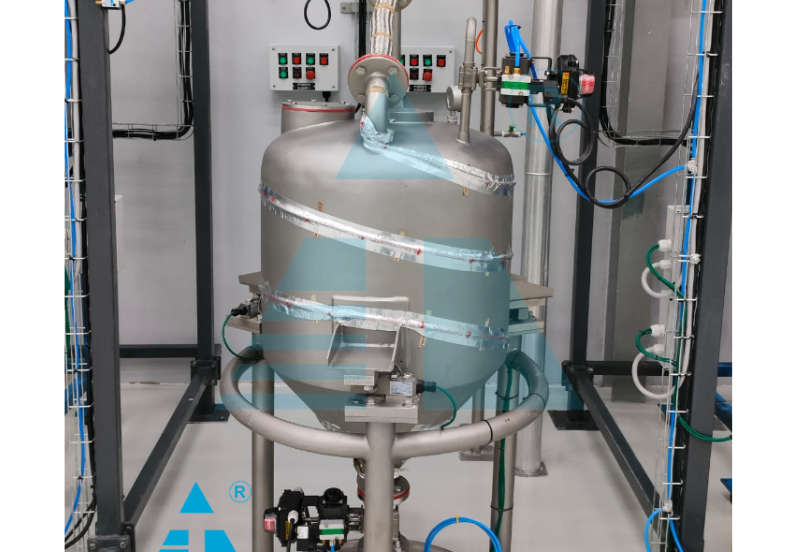How to Choose the Right Liquid Handling System for Your Laboratory

In today’s fast-paced scientific environment, laboratories depend on precision, efficiency, and accuracy to achieve reliable results. Whether you’re working in biotechnology, pharmaceuticals, diagnostics, or research, one piece of equipment has become indispensable—the liquid handling system. From automating repetitive pipetting tasks to minimizing errors, these systems improve productivity and ensure consistent results.
Why Liquid Handling Systems Are Essential
A liquid handling system helps labs manage the dispensing, transferring, and measuring of liquids with high accuracy. Unlike manual pipetting, automated systems reduce human error, improve reproducibility, and save time. Their benefits include:
-
Increased accuracy in sample measurement
-
Improved efficiency for high-throughput labs
-
Reduced contamination risks with enclosed or automated processes
-
Better consistency in experimental results
Given these advantages, investing in the right system can significantly enhance your lab’s performance.
Factors to Consider When Choosing a Liquid Handling System
1. Type of Applications in Your Lab
Different labs have different needs. For instance:
-
Clinical labs may need automated pipetting for diagnostic tests.
-
Pharmaceutical labs often require high-throughput systems for drug discovery.
-
Research labs may prioritize flexibility for multiple applications.
Understanding your primary use case will help narrow down your options.
2. Throughput Requirements
Ask yourself:
-
Do you need to process a few samples per day, or thousands?
-
Is your workflow low-throughput (basic pipetting) or high-throughput (drug screening, genomics)?
High-throughput labs benefit from robotic platforms, while smaller labs may find semi-automated systems sufficient.
3. Accuracy and Precision Needs
Not all experiments require the same level of accuracy. For molecular biology or pharmaceutical testing, even a small error in volume can affect results. In such cases, opt for systems with advanced calibration and high precision dispensing.
4. Automation Level
Liquid handling systems range from manual aids to fully automated robots:
-
Manual pipettes with electronic assistance – Good for smaller labs.
-
Semi-automated systems – Balance between cost and efficiency.
-
Fully automated systems – Ideal for high-throughput and complex workflows.
Choose the automation level that fits both your workload and budget.
5. Budget and Cost of Ownership
Price is an important factor, but don’t just focus on the upfront cost. Consider:
-
Long-term maintenance expenses
-
Consumables required by the system
-
Training and support costs
Sometimes, a slightly higher investment upfront saves more in the long run.
6. Flexibility and Scalability
Your laboratory’s needs may evolve. A system that allows upgrades or integrates with other lab automation tools ensures your investment stays relevant for years.
7. User-Friendly Design
Complex systems can slow down operations if your team struggles to use them. Look for:
-
Intuitive software interfaces
-
Easy-to-follow programming features
-
Ergonomic designs for operator comfort
Benefits of Choosing the Right Liquid Handling System
Selecting the correct system for your lab provides:
-
Improved productivity – Faster workflows mean more experiments completed.
-
Better reproducibility – Consistent handling improves data reliability.
-
Reduced contamination – Enclosed systems minimize the risk of errors.
-
Enhanced staff efficiency – Researchers can focus on analysis rather than repetitive tasks.
Conclusion
Investing in the right liquid handling system can transform your laboratory’s workflow, improve data accuracy, and save both time and resources. The key is to evaluate your lab’s specific needs—throughput, accuracy, budget, and future scalability—before making a decision.
- AI
- Vitamins
- Health
- Admin/office jobs
- News
- Art
- Causes
- Crafts
- Dance
- Drinks
- Film
- Fitness
- Food
- الألعاب
- Gardening
- Health
- الرئيسية
- Literature
- Music
- Networking
- أخرى
- Party
- Religion
- Shopping
- Sports
- Theater
- Wellness


